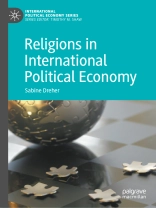This book shows how religions and their internal struggles shape key actors and processes in the international political economy. It highlights how fundamentalist, business-oriented Christians in the United States were instrumental in the neoliberal turn in US hegemony, how Christianity, in the form of prosperity religion, transformed Latin America, and how reactionary religious movements sharpened state competition through illiberal politics in Turkey, India, and elsewhere. But reactionary movements are also confronted by liberationist or more progressive movements, such as Islamic feminism, that seek to build a more inclusive global economy. Religions and their ideas should be seen as a constitutive part of neoliberal globalization and its contestation in IPE.
Tabela de Conteúdo
1. The Religious Resurgence and International Political Economy.- 2. Religious Fundamentalism and the Neoliberal Turn.- 3. Business Fundamentalism and US Hegemony.- 4. The Spirit of Capitalism and the Question of Development.- 5. Towards Multipolarity through Religious Nationalism?.- 6. Households in the Global Economy: Religious Feminism against Neo-Patriarchy.- 7. Progressive Religious Activism and Global Governance Reform.- 8. Global Imaginaries: From the Economy of Death towards an Economy of Life?.- 9. Beyond Neoliberal Theocracy?.
Sobre o autor
Sabine Dreher (Dr. rer. Pol.) is Adjunct Professor in the Department of International Studies, Glendon College at York University, Toronto, Canada.












